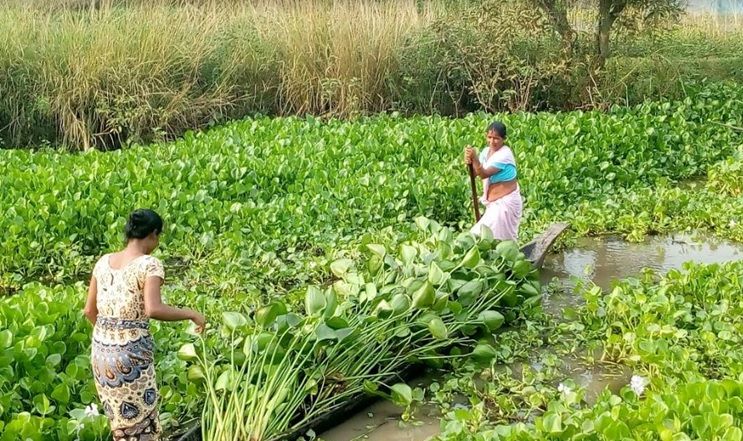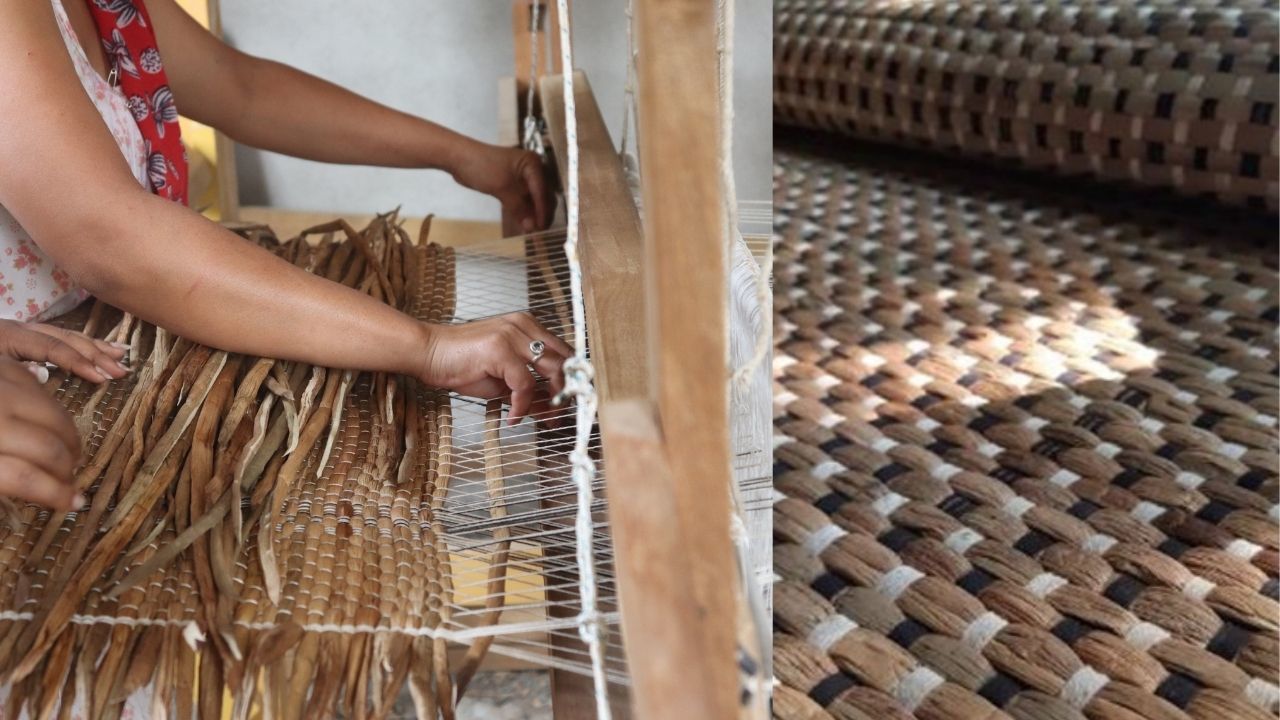Special Service and Features
Handwoven Moorhen Yoga Mats for the International Yoga Day
Posted On:
14 MAY 2022 3:06PM by PIB Mumbai
Chand Prarthna
Government of India has issued an Office Memorandum for using 100% biodegradable Yoga Mats for the upcoming International Day of Yoga. Popularly known as Moorhen Yoga Mats, this indigenous product of the North-Eastern Region helps in achieving as many as 13 UN-Sustainable Development Goals. Government is promoting these Yoga Mats to provide a sustainable livelihood to the rural women in line with ‘Vocal for Local’ and to protect a wetland from excessive growth and accumulation of water hyacinth. The Yoga mat comes in a cotton canvas cloth bag where no zip or metal closures are used. The bag has adjustable strap and closures effectively designed to be in sync with biodegradability. These mats are priced around Rs 900.
Waste from Wealth

Water hyacinth, although very pleasing to look at, is a very problematic plant at Deepor Beel, a permanent freshwater lake located in the south-west of Guwahati city. Deepor Beel, recognised as a Ramsar Site (wetland of International importance) and a Bird Wildlife Sanctuary has suffered from serious ecological degradation caused by a number of factors, one of them being, excessive growth and accumulation of water hyacinth.
Considering all aspects of water hyacinth's behavioral properties and the functional requirements of a product like a mat, a handwoven 100% biodegradable and 100% compostable Yoga mat was ideated. The biodegradable mats are named Moorhen Yoga Mat after Kam Sorai (Purple moorhen, a resident bird of Deeporbeel Wildlife sanctuary in Guwahati, Assam). The water hyacinth is weaved on the traditional Assamese Loom, adopting different combinations of techniques, materials, and tools to produce high quality biodegradable mats.
Technological intervention to increase production
The collection, drying and preparation of the water hyacinth before using it for weaving is the most important process of making Moorhen Yoga Mats. Each mat requires approximately two kg of water hyacinth which is obtained after drying 12 kgs of fresh-water hyacinth cut and collected from the Beel. It takes around 15 days for the water inside the hyacinth to dry up completely. However, small interventions of technology like using 'solar dryer' could reduce the drying time to hardly 3 days and it will also compensate for the loss in time due to heavy rains that take place very frequently in this part of the country over a six month long rainy season (May-October).
Sustainable livelihood to the rural women

The mats are prepared by women from fishing community living nearby Deeporbeel. They have trained themselves in fibre processing and making products out of the natural materials like water hyacinth present within their ecosystem.
During COVID-19 pandemic, NECTAR an autonomous society, set up under Department of Science & Technology took an innovative initiative to involve the entire women community to create wealth from water hyacinth plants. Today 38 women from three fringe villages (Keotpara, Notun Basti and Borbori) work with them, six days a week to produce Yoga Mats using natural fibre of water hyacinth.
The production of the Yoga Mats provides multiple ecological and social benefits such as improvement of the aquatic ecosystem of the wetland through removal of water hyacinth, sustainable production of utility products with community engagement and generation of livelihood for indigenous communities to become completely 'ATMANIRBHAR'.
PIB Mum/Features/ 001/CP/PK
*The author is a Media & Communication Officer in PIB Mumbai
Photo Courtesy : NECTAR, Department of Science & Technology
Follow us on social media:  @PIBMumbai
@PIBMumbai  /PIBMumbai
/PIBMumbai  /pibmumbai
/pibmumbai  pibmumbai[at]gmail[dot]com
pibmumbai[at]gmail[dot]com
(Release ID: 1825337)
Visitor Counter : 1417